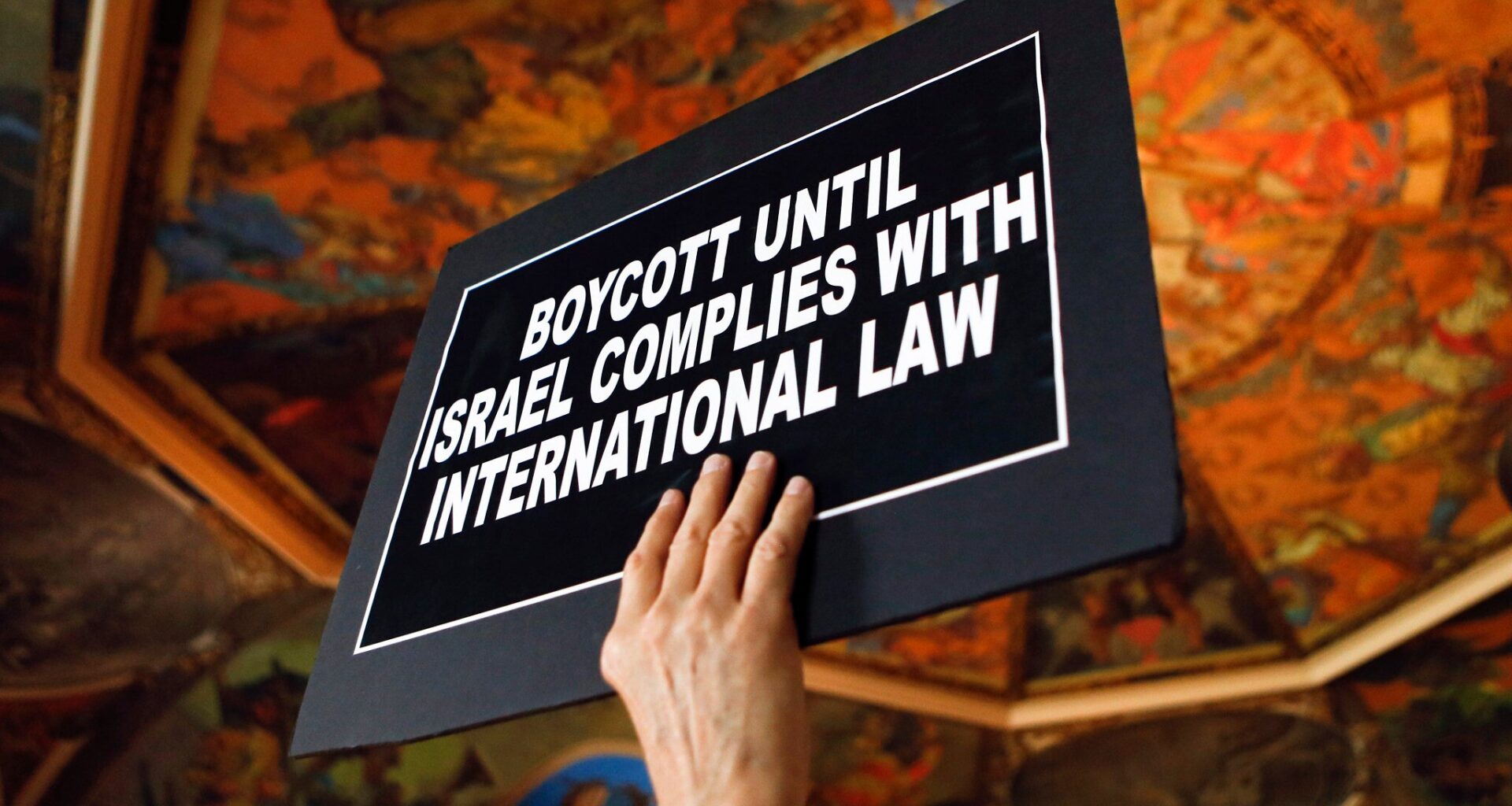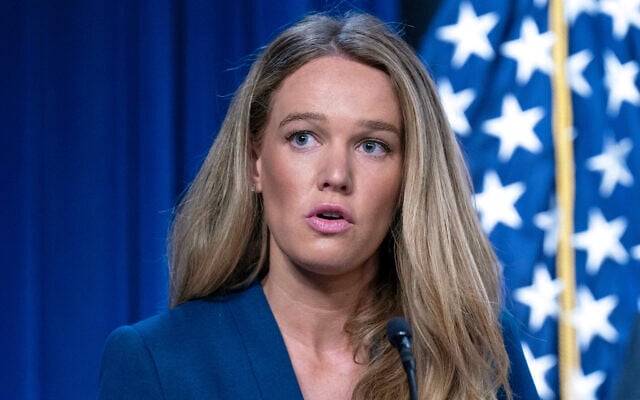WASHINGTON — US President Donald Trump’s administration quickly reversed course Monday on compelling American cities and states to avoid boycotts of Israeli companies in order to receive disaster funds, according to a statement, and deleted the earlier policy from its website hours after it was posted.
The Department of Homeland Security removed its statement requiring states to certify they will not sever “commercial relations specifically with Israeli companies” to qualify for the funding.
Reuters reported earlier Monday that the language applied to at least $1.9 billion that states rely on to cover search-and-rescue equipment, emergency manager salaries, and backup power systems, among other expenses, according to 11 agency grant notices reviewed by the news agency.
This is a shift for the Trump administration, which has previously tried to penalize institutions that don’t align with its views on Israel or antisemitism.
The disaster funding requirement took aim at the Boycott, Divestment and Sanctions movement, designed to put economic pressure on Israel to end its control of the West Bank and Gaza. The campaign’s supporters grew more vocal in 2023, after Hamas carried out its October 7 massacres in southern Israel, sparking the still ongoing war in Gaza.
Get The Times of Israel’s Daily Edition
by email and never miss our top stories
By signing up, you agree to the terms
“FEMA grants remain governed by existing law and policy and not political litmus tests,” said DHS Spokeswoman Tricia McLaughlin in a statement on Monday afternoon.
Department of Homeland Security Assistant Secretary for Public Affairs Tricia McLaughlin speaks during a news conference at ICE Headquarters, in Washington, May 21, 2025. (Jose Luis Magana/AP)
DHS oversees the Federal Emergency Management Agency. FEMA, in grant notices posted on Friday, said states must follow its “terms and conditions” to qualify for disaster preparation funding.
Those conditions required that they not support what the agency called a “discriminatory prohibited boycott,” a term defined as refusing to deal with “companies doing business in or with Israel.” The new terms, posted later on Monday, do not include that language.
Is The Times of Israel important to you?
If so, we have a request.
Every day, even during war, our journalists keep you abreast of the most important developments that merit your attention. Millions of people rely on ToI for fast, fair and free coverage of Israel and the Jewish world.
We care about Israel – and we know you do too. So today, we have an ask: show your appreciation for our work by joining The Times of Israel Community, an exclusive group for readers like you who appreciate and financially support our work.
Already a member? Sign in to stop seeing this
You appreciate our journalism

You clearly find our careful reporting valuable, in a time when facts are often distorted and news coverage often lacks context.
Your support is essential to continue our work. We want to continue delivering the professional journalism you value, even as the demands on our newsroom have grown dramatically since October 7.
So today, please consider joining our reader support group, The Times of Israel Community. For as little as $6 a month you’ll become our partners while enjoying The Times of Israel AD-FREE, as well as accessing exclusive content available only to Times of Israel Community members.
Thank you,
David Horovitz, Founding Editor of The Times of Israel
Already a member? Sign in to stop seeing this

